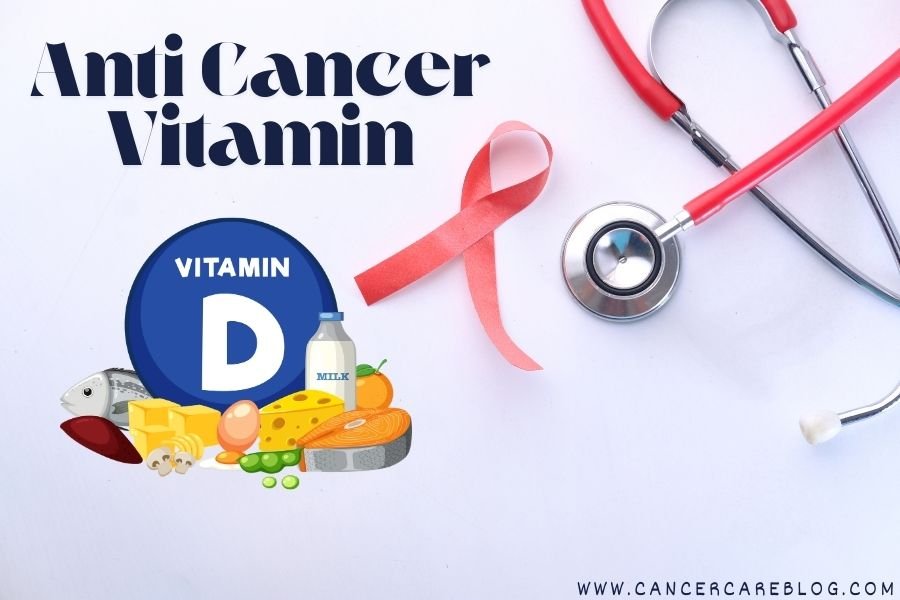In today’s world, cancer is one of the most feared diseases. It’s natural to wonder if there are simple ways to lower our risk — like using vitamins. One popular question often asked is: Which vitamin is called the anti-cancer vitamin?
Let’s explore the real science behind this claim and learn how certain vitamins, especially Vitamin D, play a vital role in protecting us against cancer.
Vitamin D: The Anti-Cancer Superstar
When people talk about the “anti-cancer vitamin,” they mostly refer to Vitamin D.
Vitamin D isn’t just good for bones; it is deeply connected to immune function, cell growth regulation, and inflammation reduction — all important factors in preventing cancer.
Several studies have suggested that people with low levels of Vitamin D have a higher risk of cancers like:
-
Breast cancer
-
Colorectal cancer
-
Prostate cancer
-
Pancreatic cancer
⚡ Fact: A 2020 study from the National Cancer Institute found that Vitamin D sufficiency was linked to a 17% reduction in cancer-related deaths!
How Does Vitamin D Help Fight Cancer?
Vitamin D helps your body in multiple ways:
| Function | How It Helps Against Cancer |
|---|---|
| Regulates Cell Growth | Prevents cells from multiplying abnormally. |
| Strengthens Immunity | Helps detect and destroy abnormal cells early. |
| Reduces Chronic Inflammation | Chronic inflammation can trigger cancer development. |
| Supports DNA Repair | Prevents harmful mutations leading to tumors. |
When your Vitamin D levels are healthy, your body’s defenses are stronger — helping prevent cancer cells from growing and spreading.
Sources of Vitamin D
You can naturally boost your Vitamin D levels through:
-
Sunlight Exposure: 10–20 minutes of sun per day helps your skin make Vitamin D.
-
Foods: Fatty fish (salmon, mackerel), fortified dairy, and egg yolks.
-
Supplements: Vitamin D3 supplements are often recommended when levels are low.
⚡ Quick Reminder: While sunlight is great, too much sun exposure can cause skin cancer. Balance is key.
Other Vitamins That Help in Cancer Prevention
Besides Vitamin D, several other vitamins support the body’s defenses:
| Vitamin | Role |
|---|---|
| Vitamin C | Acts as a powerful antioxidant protecting cells from damage. |
| Vitamin E | Protects cells from oxidative stress. |
| Vitamin A | Maintains healthy tissues and supports immunity. |
| Folate (Vitamin B9) | Helps repair DNA and controls cell division. |
Myths About Vitamins and Cancer
With so much information online, myths spread easily. Let’s bust a few:
| Myth | Truth |
|---|---|
| High-dose vitamins can cure cancer. | No scientific proof. Overdoses may even cause harm. |
| Natural supplements are always safer. | Some natural sources can still be harmful if overused. |
| Taking Vitamin D prevents all types of cancer. | It lowers risk but isn’t a 100% shield. |
Important: Always talk to your doctor before starting any new vitamin or supplement, especially if you are at high cancer risk.
How Much Vitamin D is Needed for Cancer Protection?
The Endocrine Society recommends:
-
Adults under 70: 600–800 IU per day
-
Adults over 70: 800–1000 IU per day
However, individual needs vary. A blood test for 25-hydroxyvitamin D can measure your exact level and guide supplementation.
Optimal Vitamin D blood level for health:
➡️ Between 30–50 ng/mL
Levels below 20 ng/mL are considered deficient.
Fun Fact: Vitamin D & Cancer in Numbers
-
Over 1 billion people worldwide have low Vitamin D levels.
-
Colon cancer risk may increase by 30–50% in those severely deficient.
-
Supplementation with Vitamin D could prevent up to 60,000 cases of cancer annually in the U.S. alone (study from Anticancer Research Journal).
Conclusion: Vitamin D — Your Natural Ally
To answer the question — Vitamin D is considered the anti-cancer vitamin because of its strong effects on immune function, cell growth control, and inflammation reduction.
However, it’s essential to remember that no vitamin alone can guarantee cancer prevention.
Healthy living — a balanced diet, exercise, avoiding smoking, limiting alcohol, managing stress, and regular screenings — offers the best protection.
If you’re concerned about your Vitamin D levels, talk to your healthcare provider.
A small step today could make a big difference tomorrow!



